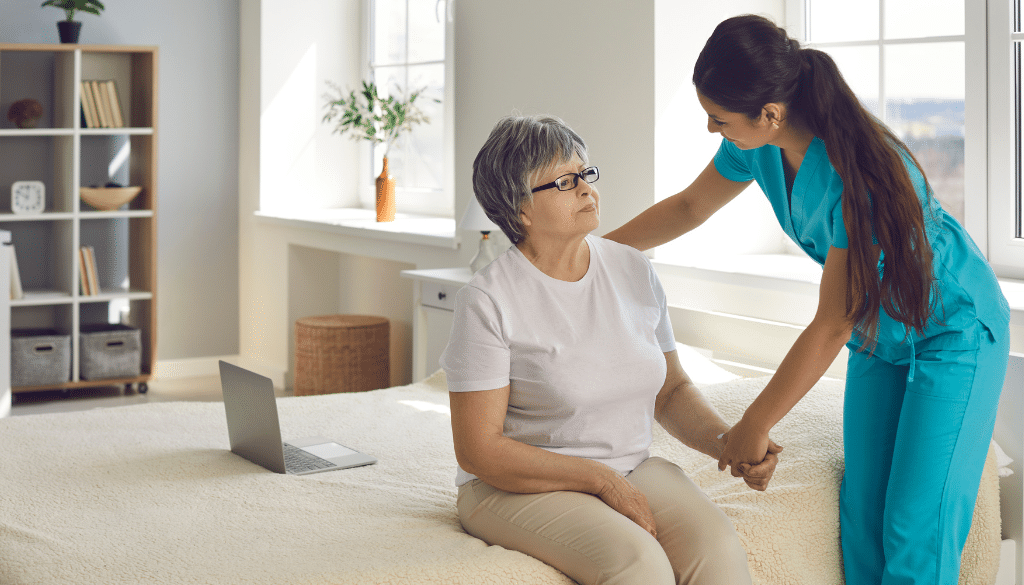Holistic Approaches to Enhance Quality of Life for Seniors Living with Dementia
Dementia is an overarching term used to describe a range of progressive neurological disorders that affect memory, thinking, and behaviour. There are many different types of dementia, with Alzheimer’s disease being the most common. As populations age, the prevalence of dementia grows, presenting a challenge to healthcare systems and families alike. Traditional medical treatments are only one aspect of care; a truly holistic approach is required to enhance the quality of life for seniors living with dementia. This article explores a variety of strategies that can be employed to ensure that these individuals live as fully and comfortably as possible.
Introduction:
Dementia can transform the lives of those it touches, redefining their needs and the care they require. It isn’t solely the decline in cognitive functions that affects quality of life but also the emotional and social toll it can take. A holistic approach to care considers the complete person, including their physical, emotional, social, and spiritual well-being. For seniors living with dementia, this often means going beyond medication to embrace a variety of strategies that encompass their total lifestyle. By doing so, it is possible not just to alleviate symptoms but to enrich life despite the challenges the condition brings.
In the journey to provide this all-encompassing care, we must consider the following key elements, each offering its own set of strategies to boost the quality of life for seniors with dementia:
- Creating a Safe and Comfortable Environment:
- Reduce clutter: A clean and orderly space can help minimize confusion and prevent falls.
- Use signage: Clear labels and signs can help orient individuals with memory loss.
- Implement safety modifications: Install grab bars, ramps, and stairlifts to facilitate mobility.
- Control lighting: Ensure adequate lighting to improve visibility and reduce anxiety, especially during nighttime.
- Familiarity is key: Arrange the living space with familiar items to provide comfort and a sense of security.
- Monitor temperature: Maintain a comfortable and consistent temperature to avoid discomfort.
- Personalize the space: Decorate with personal items like photos to promote a sense of belonging.
- Encouraging Physical Activity:
- Tailored exercise programs: Activities like walking or stretching tailored to ability can maintain mobility.
- Dance and movement therapy: Utilize music and dance to stimulate both physical and cognitive engagement.
- Chair exercises: For those with limited mobility, chair exercises can help maintain muscle tone.
- Gardening: Provides a gentle, calming form of exercise and a sense of accomplishment.
- Pet therapy: Walking or playing with a pet can be a source of joy and physical activity.
- Routine: Establishing a daily routine for exercise can create a sense of stability.
- Professional guidance: Consult physical therapists to devise safe exercise plans.
- Nutrition and Hydration:
- Balanced diet: Ensure a diet rich in fruits, vegetables, lean proteins, and whole grains.
- Hydration: Keep track of water intake to prevent dehydration, which can exacerbate confusion.
- Meal assistance: Provide assistance with eating if necessary and create a calm dining environment.
- Finger foods: Offer easy-to-handle foods that can be eaten without utensils if coordination is an issue.
- Regular meal times: Consistency in meal times can help regulate appetite and digestion.
- Dietary supplements: Consider adding vitamins or supplements as recommended by a healthcare provider.
- Mindful eating: Encourage slow, mindful eating to improve digestion and the dining experience.
- Cognitive Stimulation:
- Puzzles and games: Simple puzzles or games can provide mental exercise.
- Music therapy: Listening to music can stimulate memories and emotions.
- Art and crafts: Engaging in creative activities to stimulate the mind and provide a sense of accomplishment.
- Reading and storytelling: Reading aloud or storytelling can provide cognitive engagement and comfort.
- Memory exercises: Use memory aids or exercises to help maintain cognitive function.
- Technology: Utilize apps and games designed for cognitive stimulation in dementia patients.
- Social interaction: Simple conversations and social activities can keep the mind active.
- Emotional and Psychological Support:
- Therapy: Access to counselling or therapy to manage emotional challenges.
- Support groups: Participation in support groups for social interaction and shared experiences.
- Positive reinforcement: Celebrate small successes to promote a sense of well-being.
- Stress reduction: Techniques like deep breathing, meditation, or gentle yoga to reduce anxiety.
- Hobbies and interests: Encourage continued engagement in beloved hobbies.
- Comfort objects: Provide objects that offer comfort, such as a favourite blanket or photo album.
- Understanding behaviours: Train caregivers to recognize and respond to emotional needs expressed through behaviour.
- Social Engagement:
- Community programs: Engage in local senior or dementia-friendly community programs.
- Visitor schedules: Arrange regular visits from friends and family to maintain social ties.
- Group activities: Organize group activities that allow social interaction with peers.
- Volunteering: When possible, participate in volunteer work to promote a sense of purpose.
- Pet companionship: Regular interaction with animals can provide comfort and companionship.
- Technology-assisted communication: Use video calls or social media to keep in touch with loved ones.
- Celebrations: Mark birthdays and anniversaries to foster a sense of normalcy and joy.
- Maintaining Routine and Familiarity:
- Daily schedules: Structure daily routines to create stability and predictability.
- Celebration of past traditions: Maintain past traditions and rituals to reinforce a sense of identity.
- Regular bedtime: Consistent sleep schedules can improve rest and cognition.
- Familiar objects: Keep favourite belongings close to reinforce memory and security.
- Consistent caregivers: Having the same set of caregivers can provide a sense of familiarity and trust.
- Personal history: Use knowledge of the individual’s life history to maintain a connection to their past.
- Photo albums and memory boxes: Create and use these tools to spark memories and conversations.
- Sensory Stimulation:
- Aromatherapy: Use soothing scents to calm anxiety or stimulate appetite.
- Textured materials: Provide items with varied textures to stimulate touch.
- Natural environments: Spend time outdoors to experience different sensory stimuli.
- Music: Play songs from their youth to evoke memories and emotions.
- Light therapy: Use light boxes to simulate natural sunlight and improve mood.
- Pet interactions: Allow sensory engagement with a soft, friendly pet.
- Colourful visuals: Use bright colours and interesting patterns to engage sight.
- Medication Management:
- Regular reviews: Frequently reassess medications and their necessity with a healthcare professional.
- Organizers and reminders: Use pill organizers and reminders to maintain a medication schedule.
- Side effect monitoring: Keep a close watch on any potential side effects from medications.
- Minimize use: Use the lowest effective dose and number of medications to reduce the risk of interactions.
- Holistic alternatives: Explore natural or alternative remedies as supplements or replacements for medications.
- Clear communication: Ensure the seniors and caregivers understand the purpose of each medication.
- Healthcare collaboration: Work closely with healthcare providers to manage and adjust medications as needed.
- Professional and Family Caregiver Support:
- Education and training: Provide comprehensive dementia care training for professional and family caregivers.
- Respite care: Arrange regular respite care to prevent caregiver burnout.
- Communication strategies: Teach effective communication techniques specific to dementia care.
- Support networks: Create networks for caregivers to share resources and support.
- Care plans: Develop personalized care plans that address the specific needs of the individual with dementia.
- Access to resources: Ensure caregivers have access to necessary equipment, supplies, and support services.
- Emotional support: Offer counselling or support groups to help caregivers manage their emotional well-being.
Conclusion
Living with dementia is a profound challenge that affects every aspect of a senior’s life. However, with a holistic approach to care that encompasses their environment, nutrition, cognitive and sensory stimulation, as well as emotional, social, and psychological support, we can significantly enhance their quality of life. By considering the individual as a whole and addressing their needs in a comprehensive manner, we can create a nurturing and supportive framework that allows seniors with dementia to live with dignity and comfort. It is through these concerted efforts that we can transform the way we care for our older community members, ensuring that every day is as fulfilling as possible.
If you are seeking innovative solutions to enhance the quality of life for seniors living with dementia, We have products to assist. We understand the multifaceted nature of dementia care and offer multiple products that can assist in the management of this issue.
- Name: SMPL Technology
- Phone: 833.237.4675 ext. 1,
- Email: support@smpltec.com,
- Website: smpltec.com.
Let us help you simplify care with products designed to alleviate caregiver stress.
“Enriching Lives, Simplifying Care – Smpl Technology” Solutions”
Frequently Asked Questions (FAQ)
-
A1: Key components include reducing clutter, using clear signage, implementing safety modifications, controlling lighting, maintaining a familiar setting, monitoring temperature, and personalizing the space with meaningful items.


















